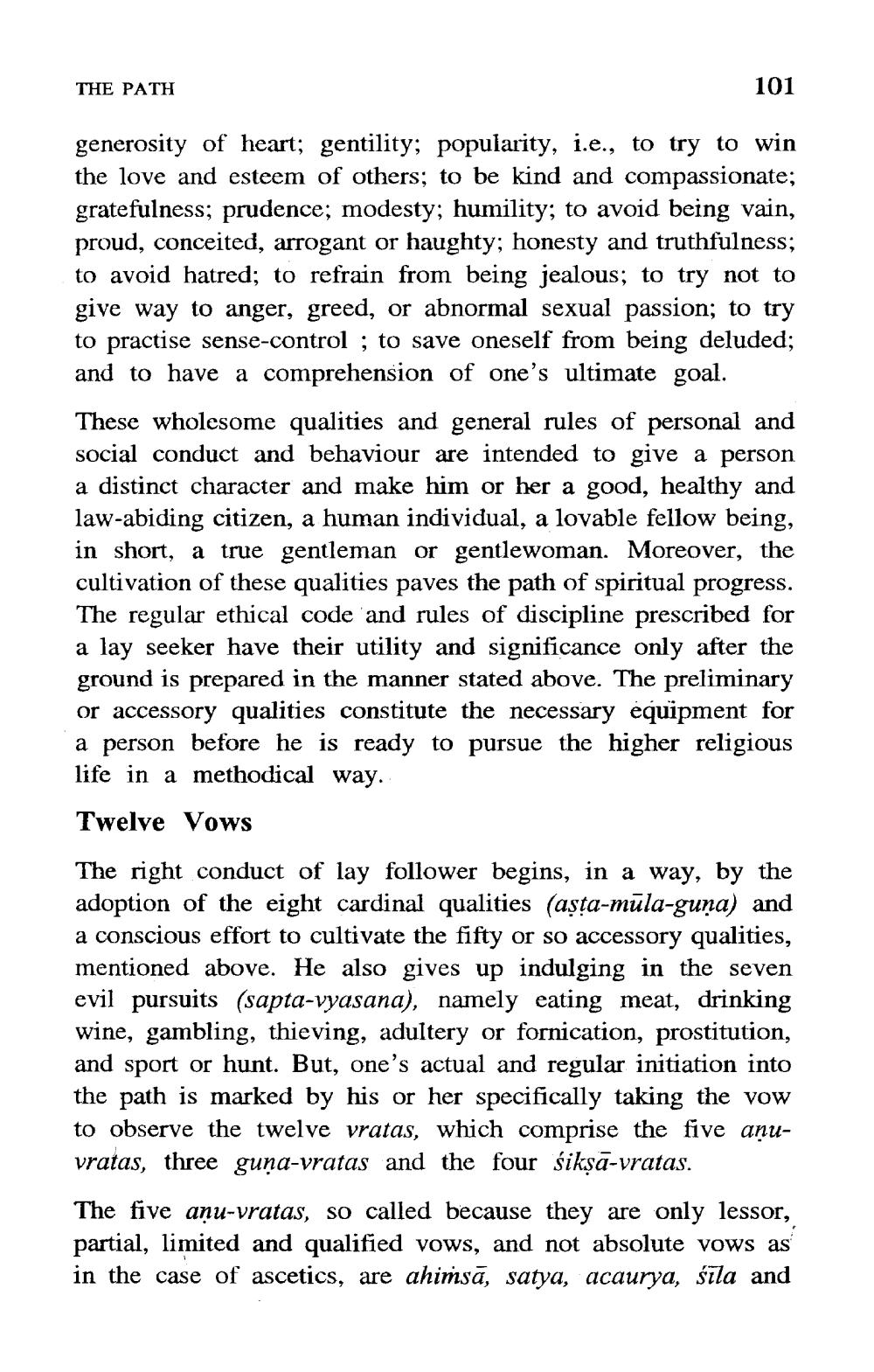________________
THE PATH
101
generosity of heart; gentility; popularity, i.e., to try to win the love and esteem of others; to be kind and compassionate; gratefulness; prudence; modesty; humility; to avoid being vain, proud, conceited, arrogant or haughty; honesty and truthfulness; to avoid hatred; to refrain from being jealous; to try not to give way to anger, greed, or abnormal sexual passion; to try to practise sense-control; to save oneself from being deluded; and to have a comprehension of one's ultimate goal.
These wholesome qualities and general rules of personal and social conduct and behaviour are intended to give a person a distinct character and make him or her a good, healthy and law-abiding citizen, a human individual, a lovable fellow being, in short, a true gentleman or gentlewoman. Moreover, the cultivation of these qualities paves the path of spiritual progress. The regular ethical code and rules of discipline prescribed for a lay seeker have their utility and significance only after the ground is prepared in the manner stated above. The preliminary or accessory qualities constitute the necessary equipment for a person before he is ready to pursue the higher religious life in a methodical way.
Twelve Vows
The right conduct of lay follower begins, in a way, by the adoption of the eight cardinal qualities (asta-mula-guna) and a conscious effort to cultivate the fifty or so accessory qualities, mentioned above. He also gives up indulging in the seven evil pursuits (sapta-vyasana), namely eating meat, drinking wine, gambling, thieving, adultery or fornication, prostitution, and sport or hunt. But, one's actual and regular initiation into the path is marked by his or her specifically taking the vow to observe the twelve vratas, which comprise the five aṇuvratas, three guṇa-vratas and the four sikṣā-vratas.
The five aṇu-vratas, so called because they are only lessor, partial, limited and qualified vows, and not absolute vows as in the case of ascetics, are ahimsa, satya, acaurya, sila and




